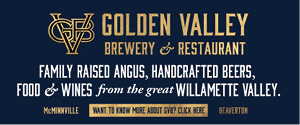Next in Line
Navigating winery succession planning
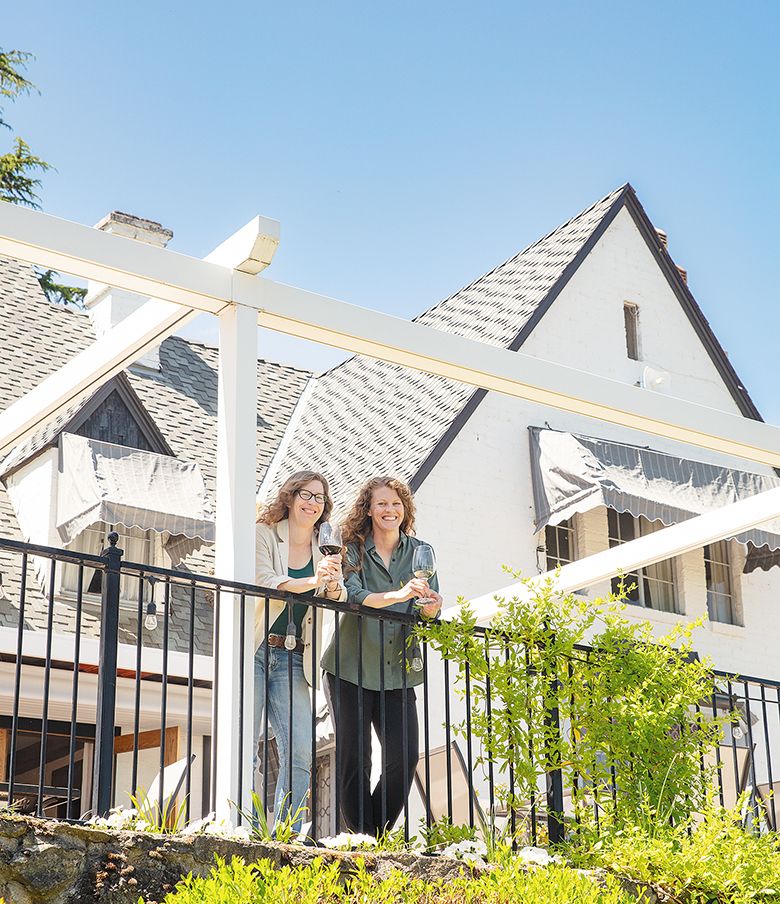

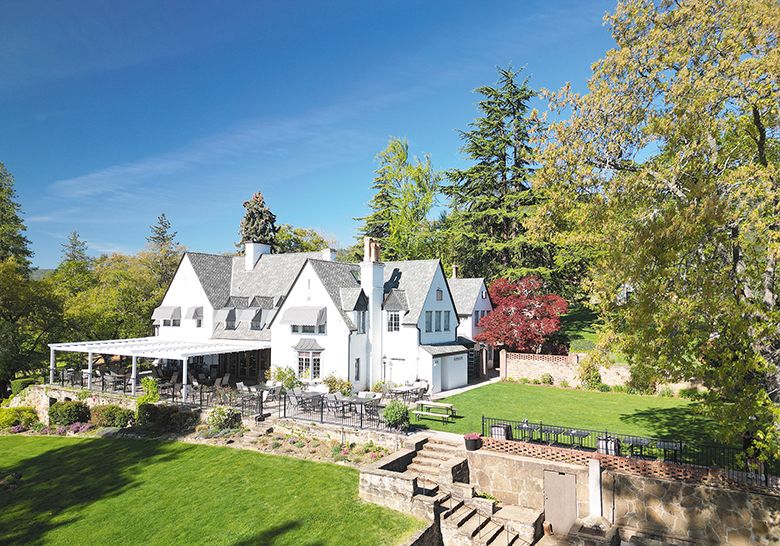
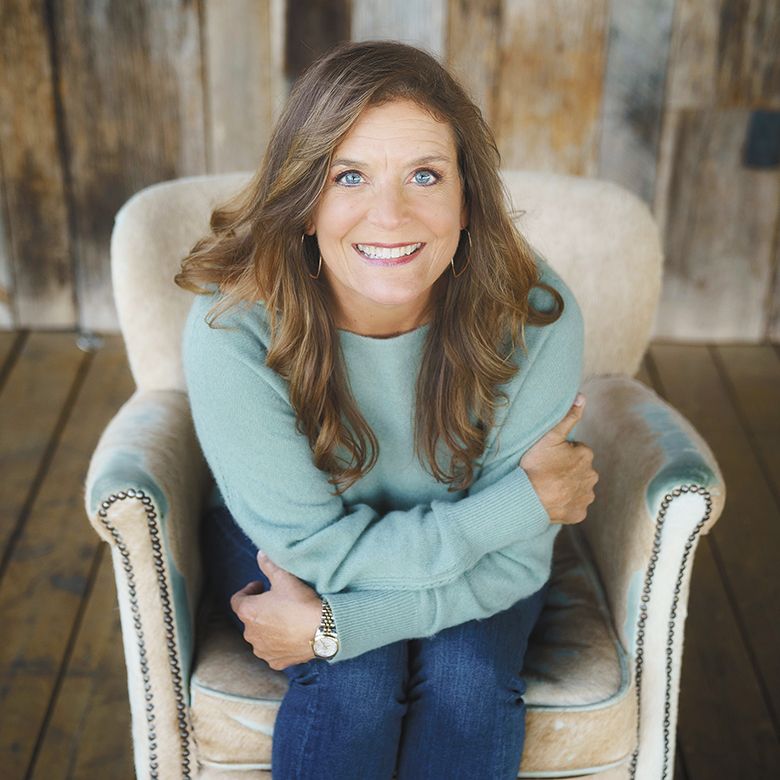
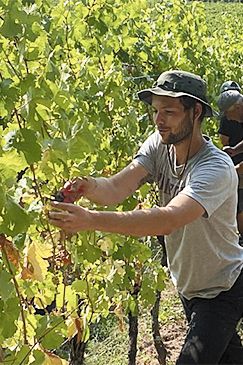
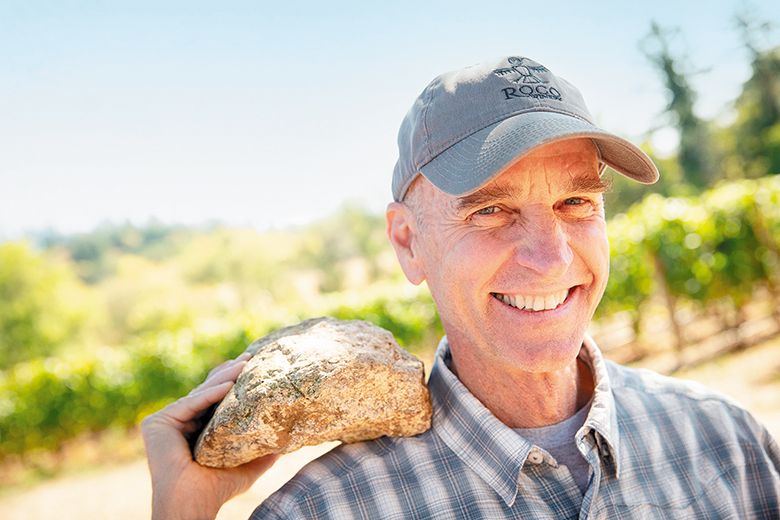
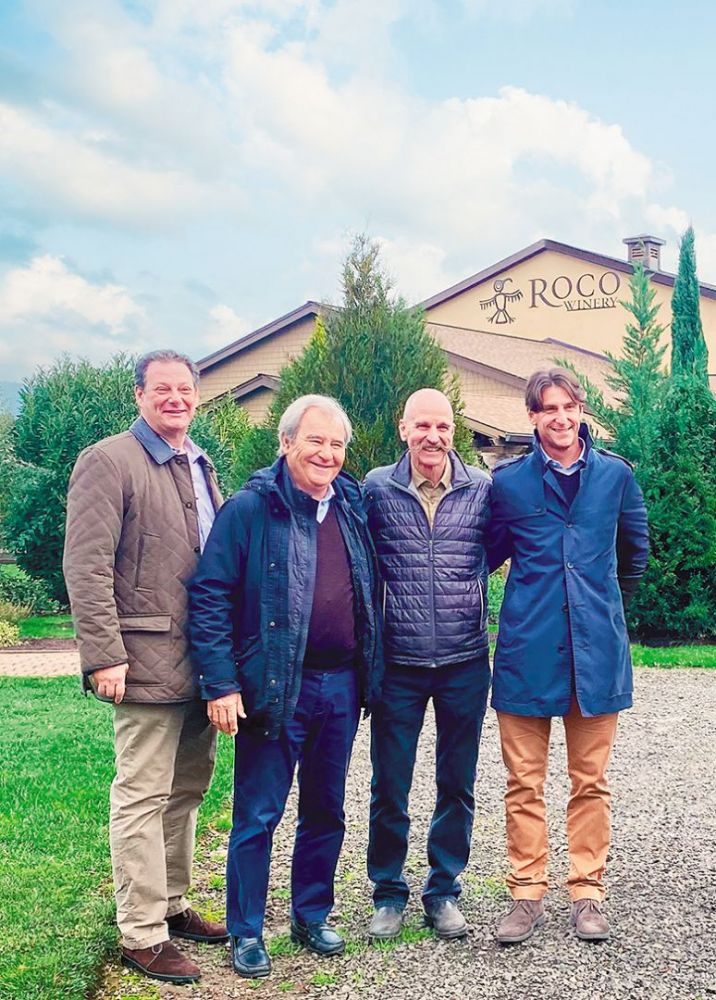
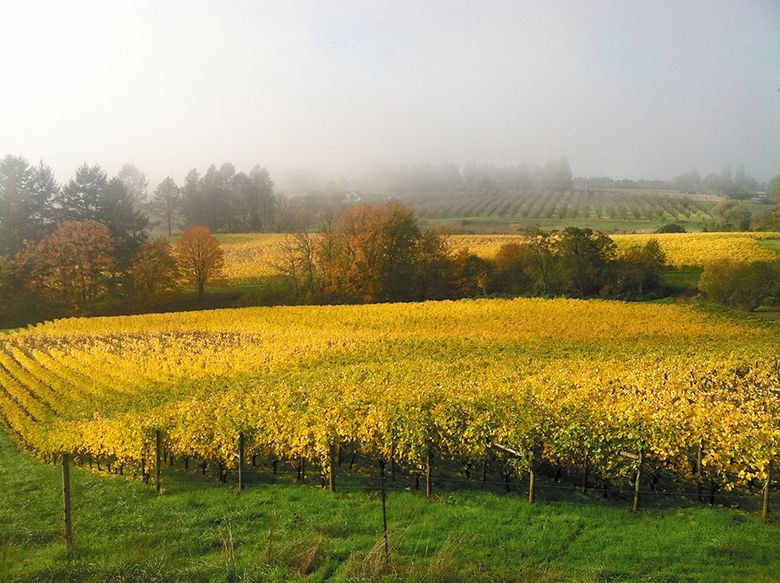
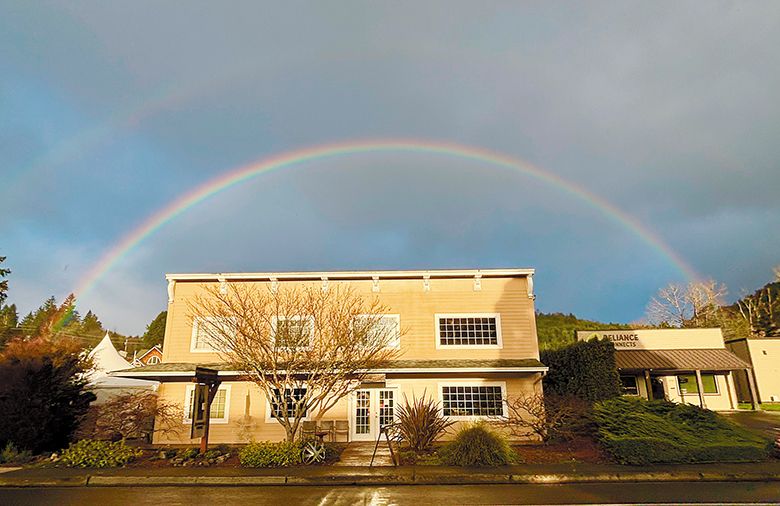
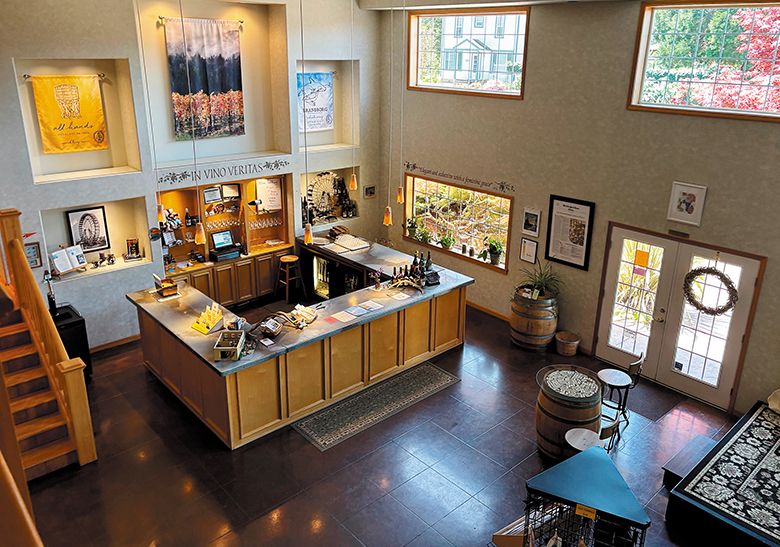
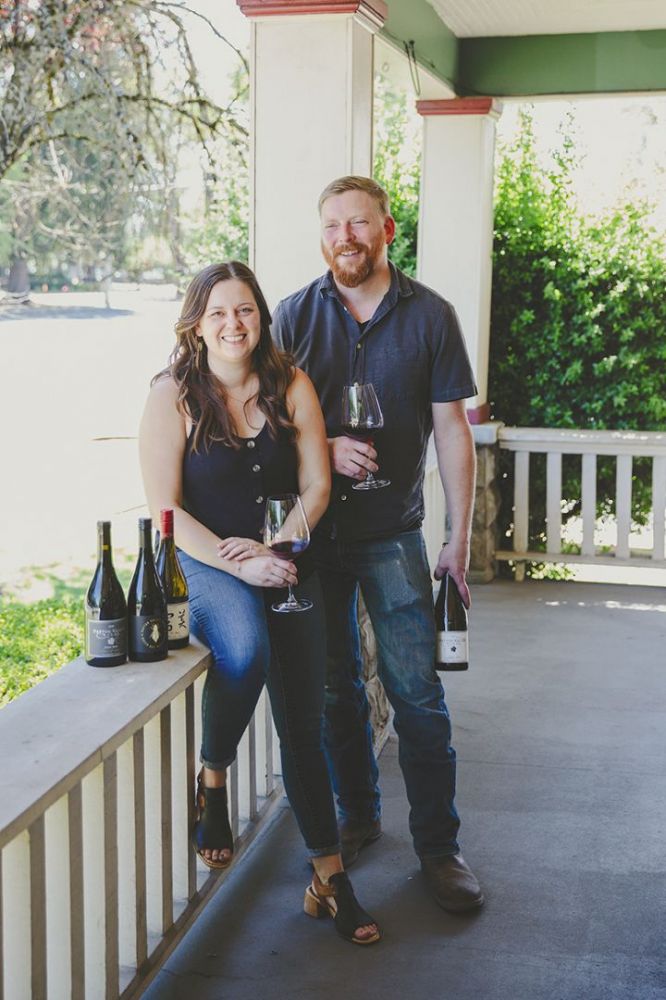
Story by Annelise Kelly
Photo by Megan Steffen Camero/Untapped Media Inc.
Every successful winery represents a passion project. Each eventually will struggle with the idea of succession. The next owners must share that passion. Retiring owners have strong emotional ties with their wine business, and equally invested in both their legacy and the financials.
While Oregon wineries often pass from parents to children, that situation is not guaranteed. I explored other scenarios with several wineries, learning about the complex emotional and practical terrain while passing the torch to the next players.
Hummingbird Estate
When I contacted Meghann Walk of Hummingbird Estate, she initially protested “we don’t have a plan.” While one may not be in place, the broad outline is clear. She and sister Kristina Alvarez, who run the winery, tasting room and inn, want to take it over. The rest of the family agrees.
While visiting Kristina in the Rogue Valley, parents Ed and Susan Walk fell under the spell of the land surrounding a dilapidated 1926 English Cottage-style home designed by British architect Louis B. Humphreys for civic and business leaders Alfred St. Vrain Carpenter and Helen Bundy. The Walks bought the property in 2017, converting it into a winery. Their primary occupation: farming grain and raising pork on one thousand acres in Illinois.
The restored mansion is now a five-suite inn, tasting room and wedding venue while the pear orchard transitioned into an 18-acre vineyard. Kristina was the original general manager with Meghann assuming over the role in 2021. Both women live on the property with their families. “My sister and I have dedicated our lives to running it,” notes Walk.
As they face the process of succession, “what matters most is fairness, especially when our family business has multiple elements. My parents’ legacy is primarily the Midwest farm; another sister farms with my dad and is assuming responsibilities of that business.”
The conversation revolves around “what is fair when some children have been working different aspects of the business, and it’s not entirely clear how to evaluate value. As you can imagine, wineries are not easily liquidated assets. Complicating the mix– there are six siblings. Even family members who haven’t been involved in the business still very much deserve a portion of it.”
Walk explains both parents came from farming families, with some wrinkles in the previous generation’s succession. “Everything is healed now but none of our siblings want that for each other. Fortunately, we’re a close family. What’s most important is staying together. We all understand there’ll be no easy solution but believe you put the whole family first.”
“My dad, as a farmer, understands the emotional attachment that develops after working a piece of land and business. It becomes part of you. So, how you do you honor that connection? It’s something they’re thinking through.”
Outside advisors play critical roles, says Walk. “They are extremely important for making us aware of the financial implications of any structure.” Taxes, trusts, inheritance law and more shift, requiring ongoing meetings with attorneys and accountants.
Brooks Wines
Brooks Wines has already experienced one family succession, sudden and unexpected after the tragic death of founder Jimi Brooks. He founded Brooks in 1998, and started farming 20 acres in 2002. He died suddenly two years later. Jimi’s son Pascal inherited the winery at age eight; his sister Janie Brooks Heuck took over operations; his good friend Chris Williams stepped in to make the wine. All remain involved.
Today, the winery, brand and inventory belong to Pascal, while Heuck and her husband own the vineyard and buildings.
Heuck never planned to enter the wine business, but when her brother died, “it was obviously life-changing for me, for a couple of reasons. Our parents were dead, so when Jimi died, so did the last of my immediate family.”
Taking over “kept his legacy– and the family name– alive. I was overwhelmed by the generosity of Oregon’s wine community when he passed away. A group of Jimi’s friends offered to take our fruit and help make the wine for free. Then, Chris offered to be our winemaker. I was struck by how you could be in an industry, and love it… to have that much passion and authenticity and all the things. To actually really enjoy what you do– because that’s not what I had done in my prior career.”
Jimi’s unconventional ideas also compelled Heuck to persevere. “He was cutting against the grain, bringing biodynamic farming to the forefront of how to farm grapes. Riesling was his primary varietal. He was doing things very unique in the industry at that point.”
After 20 years leading Brooks, succession approaches and Heuck wonders how the future will unfold. “My husband’s retiring in December, but I am working full force. My nephew is a silent owner.” Pascal will attend school in France for the next two years “and wants to come back and help run our vineyard management.”
However, “he doesn’t want to take over the business side of things.”
“I feel like I need to call OSU and go back to the farming succession planning class I took a couple years ago. Because 95 percent of Oregon’s farms are family-owned, they have a whole succession planning department dedicated to farming, with legal, accountants, marketing– all the necessary people.”
When considering potential avenues for succession, she observes “much depends on business models. When you look at a lot of the winery acquisitions and whatnots happening, many are scalable brands. They don’t have our significant direct-to-consumer base. Ours makes up about two-thirds of our business. That’s tied to demand, our story and unique approach to winemaking. Our customers know the people behind our brand. So, I don’t see us really as an acquirable brand in that sense– not that I would want to be. But I do think about the financial considerations… how do you ever get your money back in this business?”
Continues Heuck, “The challenge you have with wine is the clock never stops. You’re reinvesting every growing season and unless you get off that merry-go-round, there’s no end in sight.” She also considers, “if all of a sudden I said I’m done making wine, what does that mean for my people? It’s my family name, right? It’s my brother’s name; there’s such a story behind it. I want it to have a good ending.”
ROCO Winery
Rollin Soles, with deep roots and substantial credibility in Oregon’s wine industry, co-founded Argyle Winery in 1987. When launching ROCO Winery, he was excited “to work with my wife, Corby (Stonebraker-Soles), who was president. We planted a new vineyard in 2001 and produced a mere 100 cases two years later. From there, we flourished as my wife ran the company while I grew the grapes, made and sold the wine. During that time, Corby also served as executive director of both IPNC and Yamhill Winery Association (now called Willamette Valley), president of ¡Salud! and chairwoman of Chehalem Cultural Center. It was really, really, really fun.”
Soles experienced the other side of succession at Argyle as his partners aged out. “My wife and I were cognizant of that. However, after realizing we too could entertain a succession or a sale of ROCO, suddenly, this wonderful Italian family rolled into the area– the Marzotto family associated with Santa Margherita Wines. They had fallen in love with the Valley, just like I had.”
He notes how much of our industry is “more or less first generation, it doesn’t have long history yet. We have always crafted ageable wines because great wine regions produce wines that can age.”
Soles believes “educated, multi-generation European winemakers involved in the Willamette Valley supplies credibility in spades. I was thrilled when the Marzotto family walked into our winery and said, ‘we believe strongly you’re our guy and winery.’ They are five generations operating multiple Italian wineries. Their expertise in viticulture and winemaking is extraordinary. I think it’s a real statement and a feather in our cap to have them involved in the Willamette Valley.” Santa Margherita is now the majority owner of ROCO Winery.
Soles advises wineries hoping to attract buyers “to get your books in order… hopefully, you’re profitable with a very strong reputation.” He also urges involving lawyers, accountants and brokers. “All those folks have done this before. If you do it right from the beginning, you won’t suffer as many headaches. My biggest advice is to do the right thing for the long term. In our case, I feel incredibly lucky and blessed we’re partnered with such a professional entity. This company, these people, are incredibly passionate. I just love being around them. Don’t sell to an investor who plans to merely flip the place. Most Northern European family-held companies are multi-generation, which means they buy, improve and hold on their assets. What the Willamette Valley needs is that stability.”
Brandborg Vineyard & Winery
Terry and Sue Brandborg are selling Brandborg Winery as part of their succession plan. Renowned for exceptional wines and industry leadership, Terry notably played a key role in establishing the Elkton American Viticultural Area.
With an affinity for cool climate varietals, 15 years of experience in the California wine industry with Brandborg Cellars, and a healthy wariness of climate change, they relocated to the small town of Elkton, nestled in the Coast Range. In 2002, the couple planted five acres of Pinot Noir at 1,000 feet, opened an in-town tasting room, and crushed their first vintage.
“We grew our brand from 2,500 cases to 6,000 in the first four years,” says Terry. Achieving an annual production of 10,000, they also established a successful custom crush business. “That took a toll. We love to travel and haven’t been able to carve out time to do as much as we would like.” As they approach retirement, the desire to enjoy greater freedom and flexibility has become a key factor in their decision to sell.
In respect to passing the business along, he observes, “if I had family who wanted to take it over, that would be the ideal… but we don’t.” His two sons (“I called them my forced labor on weekends” back in California) have gone on to their own creative careers, as has Sue’s daughter.
What matters most is finding “somebody who recognizes Elkton and the quality of our wines. We’ve received multiple awards– and really big ones. Many double golds, best of shows and other accolades. This is an area where you can craft a really high-class product. Sue and I are offering a turnkey situation where someone can move right in and start making wine. We’re hoping somebody sees that as a good opportunity.”
The listing includes all equipment, the wine inventory, along with the brand. “It doesn’t make a heck of a lot of difference to me if somebody wants to sell through the rest of our wines and start their own brand. What’s most important is selling to someone who recognizes the quality of what we’ve been able to do and the caliber of our region.”
Patton Valley Wines
At Patton Valley Wines, the ideal buyers were literally under the owners’ noses: two members of the tiny existing team bought it. Justina Bice had been running the program for almost eight years, and Derek Einberger had been winemaker since 2010. Together, they bought the brand and wine inventory, while the vineyards, tasting room and production facilities were sold separately.
Bice says the previous owners offered it “to us based on the fact we cared so much about the brand. We’re like family. I think for them, having that emotional connection, retains the sentiment.” Patton Valley had a small, family-run feeling and deep, emotional connections with its members, “so keeping that going was extremely important to them.”
Maintaining Patton Valley’s identity remains a major hurdle. “From our perspective, a lot of customers don’t love the idea of their local winery selling to a big brand. Our biggest challenge has been getting them to understand that isn’t the case with us. It has been over two years, and I still have customers asking who bought us or not wanting to purchase anymore because they think we have sold out. I regularly remind people how we are even smaller now than we were before. Don’t worry, Patton Valley has the same winemaker, same great wine, same people.”
Is she considering what succession will look like? No. “We’re starting almost at the same point where (founders) Monte and Sherie started, around their mid-30s.
That seems so far down the line, I have no idea.”
After living in Denmark, the Netherlands, L.A. and the Bay Area, writer Annelise Kelly settled in Portland, where she delights in food carts, Douglas firs, dancing and getting crafty. Thanks to Annelise’s broad interests, her career path has weaved through cooking, events, technical writing, decorative painting and retail display. Wanderlust takes her across borders and oceans every chance she gets. Connect with Annelise at www.annelisekelly.com.
Megan Steffen Camero is a visual storyteller with over 20 years focused on photography, marketing and communications. Her career began as a marketer for a Fortune 500 software company, eventually moving into the wine industry. Megan has led the social media marketing efforts of Trinchero Family Estates, including Sutter Home and Ménage à Trois Wines, as well as Jackson Family Wines, their flagship brand Kendall-Jackson and seven other wine brands.
In 2014, she founded Untapped Media Inc., a boutique agency offering visual assets for content creation, social media marketing and commercial photography, primarily focused on the wine industry. Her work has been published in various industry publications, like Oregon Wine Press and Wine Spectator, and used by her clients across their many marketing channels, including social media, billboards, national in-store campaigns, email marketing, websites and printed collateral. Learn more at www.untappedmediaco.com.





